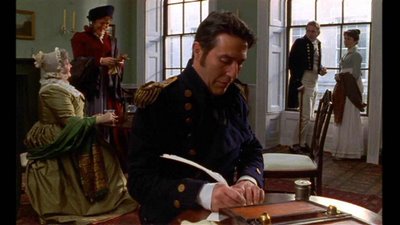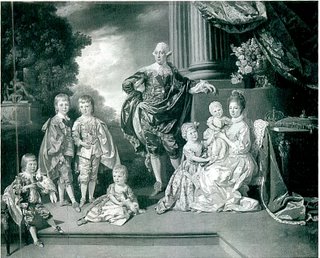
Risky Regencies is your trusty Regency Emporium, serving all your Regency needs. Our readers asked for author updates, and so what do we have for you today? Author Updates!
So grab a cup of tea, pull up a cozy chair, and find out what Regency authors are up to…
VICTORIA HINSHAW tells us she’s been recharging her batteries — thinking, playing with lots of different ideas for plots and characters, and catching up on all the reading she missed while writing three books a year for Zebra. She has a Regency historical in the works, and has also been working on a fictional biography of Princess Charlotte. (I’ve noticed a couple other Regency writers have been going the nonfiction route in one form or another — hmm…is this a trend? Or just three individual writers making individual choices?)
What Victoria Hinshaw was too modest to mention (but we know anyway — ha!) is that her 2005 books have been doing extremely well with the recent contests. ASK JANE (Zebra Regency, April 2005) finalled in several prestigious contests, and won the Golden Quill Award for Best Regency. (That’s the contest our own Elena won in the historical category — so we know it’s a good contest.) 🙂 And with her August release LEAST LIKELY LOVERS, Vicky is competing against Diane and Cara for the Booksellers’ Best Award. (And we still like her! How’s that for professionalism?)
JENNA MINDEL reports, “Here’s what I’m up to now…I’ve been working on a contemporary Inspirational romance set in the Upper Peninsula of Michigan.” She’s also a RITA finalist for her Regency Miss Whitlow’s Turn!
DOROTHY McFALLS “feels blessed to have landed firmly at Venus Press.” She’s obviously been very busy, with FOUR titles out this year, all different subgenres! Lady Sophia’s Midnight Seduction, a short erotic Regency; Neptune’s Lair and its sequel Marked, which are paranormal erotic suspense; and The Huntress, contemporary mainstream. Wow! Plus her Signet Regency, The Marriage List, is a finalist in the National Readers’ Choice Award. For details on all these projects, visit http://www.dorothymcfalls.com
JO ANN FERGUSON is still writing Regencies. She just turned one in to her editor at Signet where she’s writing as Jocelyn Kelley. She’s been writing the medieval series “The Ladies of St. Jude’s Abbey” as Jocelyn Kelley for the past two years. A Moonlit Knight came out in May and My Lady Knight is scheduled for January 2007. Then she returns to Regencies when the Regency-historical trilogy “The Nethercott Tales” are published by Signet Eclipse. For those of you who enjoyed the Priscilla Flanders mystery series from Zebra Regency, look for these books about the three Nethercott sisters that have suspense elements along with ghostly paranormal. The first book in the series (with a working title of The Mistress School) is scheduled for July 2007 to be followed by Gentleman’s Master. She’s also still writing for ImaJinn as J.A. Ferguson. In 2006, she’s got Luck of the Irish (a leprechaun story), Sworn Upon Fire (an alternate world futuristic), and The Wrong Christmas Carol (an angel Christmas story) coming out.
ANDREA PICKENS/ANDREA DaRIF has been busy with a new series for Warner Forever, the “Hellion Heroes.” The first book, The Spy Wore Silk, is out in March 2007. This is what she says about it: “At first blush, Mrs. Merlin’s Academy for Select Young ladies is the very pattern card of a proper boarding school. But looks can be deceiving, along with music, art, dancing, and the social graces, the students–all streetwise orphans chosen for their toughness and intelligence–are being molded into an elit fighting force. England’s secret weapon. When a critical government document is stolen from Whitehall, the student known only as Siena is given the assignment to keep it from falling into enemies’ hands…”
So, what have your other favorite Regency authors been up to? Check here every Sunday to find out! And if there’s a certain author you’d love to have an update on, let us know!
The Riskies




